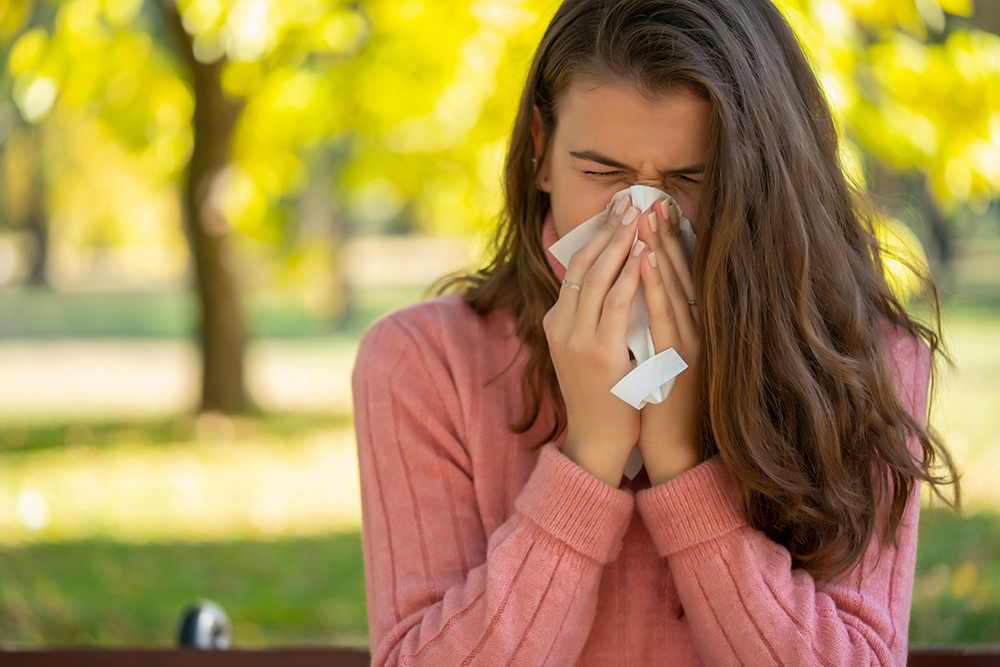Seasonal allergies are an unwelcome guest that can disrupt daily life with sneezing, wheezing, coughing, itchy eyes, a scratchy throat, and a runny nose. However, beyond these familiar symptoms lies a less discussed but equally challenging issue – allergy fatigue syndrome. Understanding and managing tiredness in all its forms is critical in early recovery, as it can impact your overall well-being. Let’s explore allergy fatigue syndrome, how it differs from normal tiredness, and why rest is crucial, especially when you want to maximize your sobriety.
What Is Allergy Fatigue Syndrome?
Allergy fatigue syndrome refers to the profound sense of weariness triggered by an allergic reaction. Unlike the usual feelings of sleepiness after a poor night’s sleep, this persistent exhaustion can severely impact your ability to perform daily activities.
Allergy fatigue arises because your body is working overtime to fight off what it perceives as harmful invaders – pollens, molds, pet dander, and other triggers. The immune response can lead to chronic inflammation and release chemicals like histamine, which cause typical allergy symptoms while making you feel drowsy.
Often, the medications used to alleviate allergy symptoms can also contribute to fatigue. Traditional antihistamines like Benadryl (diphenhydramine) have sedative effects. Though they block the chemicals that cause allergic reactions, they might make you feel unusually sleepy throughout the day. Even some newer, non-sedating antihistamines may cause mild drowsiness in some people.
Allergy Fatigue vs. Everyday Tiredness
You should know how to differentiate allergy fatigue from the typical tiredness you might feel after a bout of insomnia or a long day of hard work. First, other symptoms tend to accompany allergy fatigue, which doesn’t typically happen with regular weariness. Furthermore, this fatigue doesn’t always resolve with a good night’s sleep; it can persist as long as your allergic reaction continues, which can be year-round in severe cases.
Feeling constantly tired due to allergies can be particularly frustrating when you’re in recovery. After working to overcome your challenges in a women’s treatment program, you might feel a strong desire to reclaim every moment of your newfound sobriety. However, acknowledging and accommodating your body’s needs is a crucial part of the recovery process. Here’s how you can manage allergy fatigue while sticking to your wellness goals.
- Consult with your health provider: Discuss your allergy symptoms and the side effects of your current medications. A doctor can recommend alternative remedies that do not weigh you down.
- Prioritize rest: Embrace the idea that self-care is not time wasted but an essential part of recovery. Listening to your body and resting when you need it is the most loving thing you can do for yourself. It can strengthen your immune system and improve your overall energy levels.
- Stay hydrated and eat well: Good nutrition and hydration can boost your immune system and help your body cope with allergies more effectively.
- Create a comfortable environment: Reduce allergens in your home by keeping windows closed during high-pollen days, using HEPA purifiers, routinely changing your air filters, and regularly cleaning dust and pet dander.
- Practice good sleep hygiene: Establish a routine that promotes quality sleep, such as going to bed at the same time every night, ensuring your bedroom is dark and cool, and avoiding stimulants close to bedtime.
Welcome to Your New Beginning at The Pearl
Allergy fatigue syndrome is a real and challenging issue, especially for those in recovery. You can ensure it doesn’t hinder your progress in sobriety by understanding its impact and finding practical ways to manage it.
Remember, taking care of your body’s needs is a crucial aspect of maintaining long-term health and wellness. At The Pearl, we understand the complexities of healing from addiction and are here for you when you are ready to accept help. Learn about our welcoming, judgment-free environment by contacting us today.




